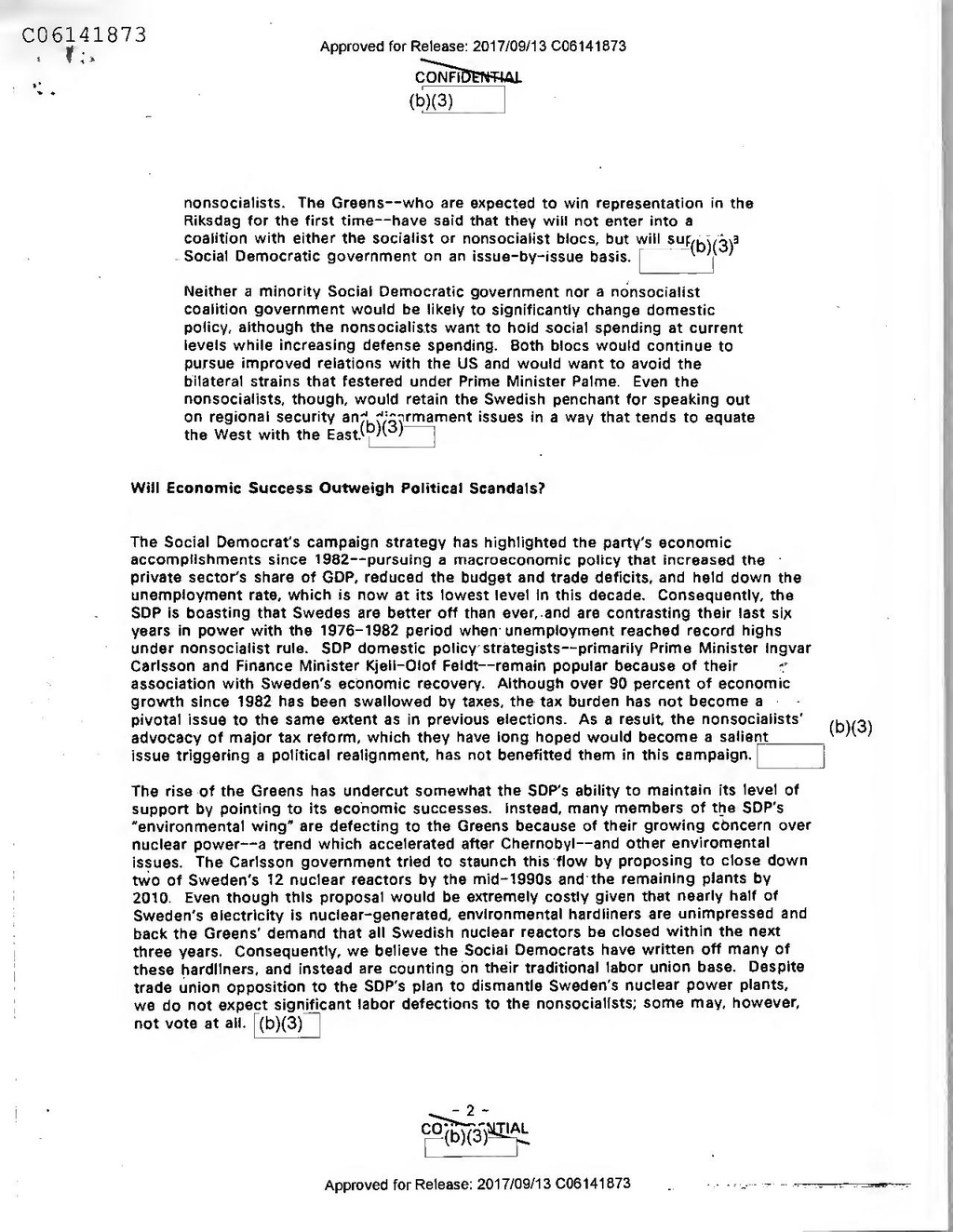CONFIDENTIAL (b)(3)
nonsocialists. The Greens--who are expected to win representation in the Riksdag for the first time--have said that they will not enter into a coalition with either the socialist or nonsocialist blocs, but will suf
SUF(b)(3) Social Democratic government on an issue-by-issue basis.
Neither a minority Social Democratic government nor a nonsocialist coalition government would be likely to significantly change domestic policy, although the nonsocialists want to hold social spending at current levels while increasing defense spending. Both blocs would continue to pursue improved relations with the US and would want to avoid the bilateral strains that festered under Prime Minister Palme. Even the nonsocialists, though, would retain the Swedish penchant for speaking out on regional security and armament issues in a way that tends to equate the West with the East.(b)(3)"
Will Economic Success Outweigh Political Scandals?
The Social Democrat's campaign strategy has highlighted the party's economic accomplishments since 1982--pursuing a macroeconomic policy that increased the private sector's share of GDP, reduced the budget and trade deficits, and held down the unemployment rate, which is now at its lowest level in this decade. Consequently, the SDP is boasting that Swedes are better off than ever, and are contrasting their last six years in power with the 1976-1982 period when unemployment reached record highs under nonsocialist rule. SDP domestic policy strategists--primarily Prime Minister ingvar Carlsson and Finance Minister Kjell-Olof Feldt--remain popular because of their association with Sweden's economic recovery. Although over 90 percent of economic growth since 1982 has been swallowed by taxes, the tax burden has not become a pivotal issue to the same extent as in previous elections. As a result, the nonsocialists' advocacy of major tax reform, which they have long hoped would become a salient issue triggering a political realignment, has not benefitted them in this campaign.
(b)(3)
The rise of the Greens has undercut somewhat the SDP's ability to maintain its level of support by pointing to its economic successes. Instead, many members of the SDP's "environmental wing" are defecting to the Greens because of their growing concern over nuclear power--a trend which accelerated after Chernobyl--and other enviromental issues. The Carlsson government tried to staunch this flow by proposing to close down two of Sweden's 12 nuclear reactors by the mid-1990s and the remaining plants by 2010. Even though this proposal would be extremely costly given that nearly half of Sweden's electricity is nuclear-generated, environmental hardliners are unimpressed and back the Greens' demand that all Swedish nuclear reactors be closed within the next three years. Consequently, we believe the Social Democrats have written off many of these hardliners, and instead are counting on their traditional labor union base. Despite trade union opposition to the SDP's plan to dismantle Sweden's nuclear power plants, we do not expect significant labor defections to the nonsocialists; some may, however, not vote at all. [(b)(3)
- 2 - COM
(b)(3) XTIAL
Approved for Release: 2017/09/13 C06141873
